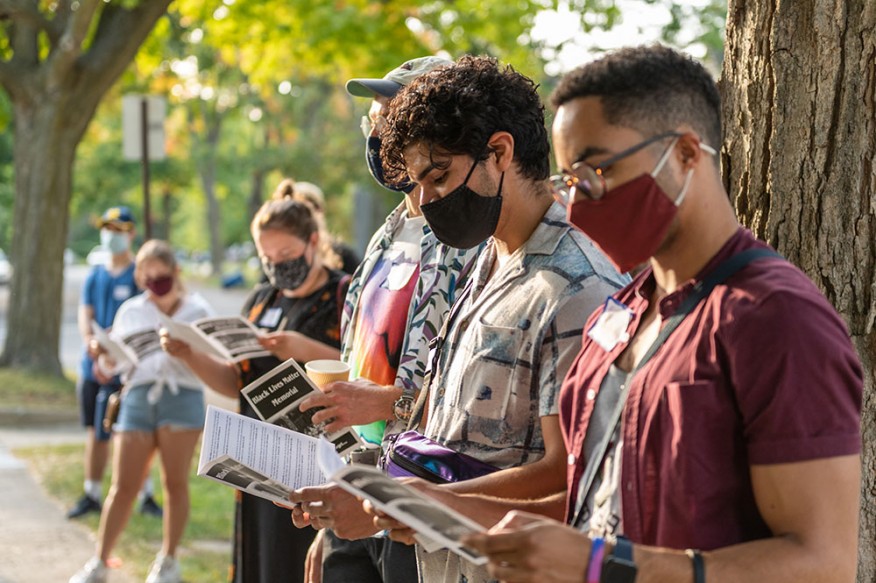The U.S. Bureau of Labor Statistics predicts that employment of social workers is projected to increase 13 percent from 2019 to 2029. Michigan Social Work is preparing students for the growing job market by developing innovative programs and coursework that provide the skills and training necessary to become leaders, practitioners and educators.
CASC 2010-2020
The Community Action and Social Change (CASC) undergraduate minor celebrated its 10th anniversary. In a decade, the minor has grown to become the second largest minor at U-M. An average of 250 students declare the minor annually and 25% of CASC graduates go on to pursue their MSW at U-M. In addition, CASC students and alumni (over 900 strong) have seeded projects and programs across the campus and community. Over 100 CASC alumni participate each year in activities including interviews with current students, alumni panels and the new PodCASC. These interactions are a testament to the relationship between CASC staff, faculty, and students throughout the years.
CASC launched a new “PodCASC,” an ongoing series of interviews with alumni who share their stories of community action and social change after college. The in-depth conversations cover issues including finding a social justice community in a new city, and navigating social justice language in different work cultures., Visit Simplecast, Spotify, or Apple Podcasts to subscribe and listen.
MSW Program Creates New Partnerships and Part-Time Option
The U.S. Bureau of Labor Statistics predicts that employment of social workers is projected to increase 13 percent from 2019 to 2029. Michigan Social Work is preparing for the future by expanding options to the MSW program. The School of Social Work has formed new partnerships with U-M Sociology and the UM-Dearborn Human Services to create a path where students earn their BA and begin MSW courses as an undergraduate.
New Part-time options include evening/weekend or day. The part-time MSW program provides students with flexibility so they can balance studies, work, family and other commitments. “Going to school part-time allows me the flexibility to maintain my job responsibilities while getting my MSW, at a pace where I can balance my work, family and other obligations,” said Keisha Toole.
P.O.D.S. stands for privilege, oppression, diversity and social justice. For over 20 years, the exploration of these concepts has been a foundation of an MSW education. P.O.D.S is at the crux of all we do. It provides the Michigan Social Work community with a shared language and a platform to discuss these issues as a community. It is a metric for MSW students to use in their own practice. By centering justice at the core of our work, we allow justice to become the lens through which all our goals are viewed.
Joint PhD Program Increases Research Opportunities
The 2019-2020 school year saw new classes in data analysis, meta-analysis, qualitative methods and theories of change. Enrollment in these courses has been strong and has included students from outside the School of Social Work. William Elliott, Joint PhD Program in Social Work and Social Science director, said “It has been a goal of the Joint PhD program to become a leader at U-M in providing research methods classes for students conducting intervention research. We have increased the number of research classes thanks to outstanding faculty. We have seen the number of students taking these classes from around campus increase. We are on our way to being a leader in providing research methods classes on the Ann Arbor campus.”
